
The best online radiation science degrees for undergrads offer a convenient way for health care techs to earn advancement in their careers. Technology in healthcare is constantly being invented and improved. To keep up with new approaches, advanced education is frequently beneficial.
In the field of Radiation Sciences, for example, everything from X-rays, diagnostic scanners, and treatment modalities are constantly changing. “Rad Techs” are specially trained in the handling and use of radiation in the diagnosis and treatment of diseases and illnesses. Earning an online radiation science degree will help you advance your abilities as well as your career.
Best Health Degrees has found schools that hold accreditation and for which financial aid is available. You’ll want to complete the Free Application for Federal Student Aid (FAFSA) to determine your eligibility for funds.
Our Method: Ranking the Best Online Radiation Sciences Bachelor’s Programs
To rank the 15 Best Online Radiation Sciences Bachelor’s Programs, Best Degrees editors researched accredited, trusted programs of all kinds. From our initial pool, we ranked programs according to price, accreditation, reputation, and salary potential, using data from IPEDS and Niche, U.S. News and World Report, and other higher education rating publications.
1. University of Iowa Health Care
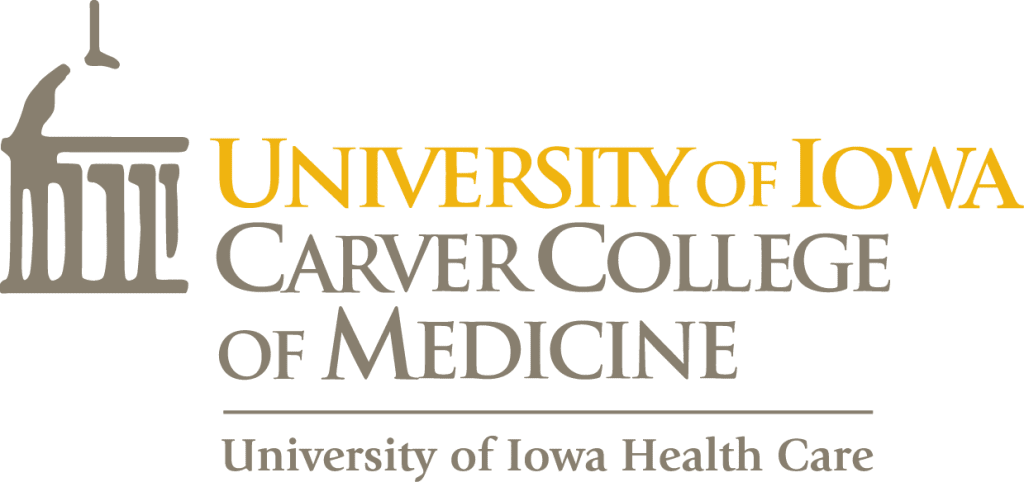
This may be the right program for you, if you’re currently working as Radiation Technologist and want to advance your career. The University of Iowa Health Care has a RT to BS degree in Radiation Sciences offered through its Carver College of Medicine.
Prerequisites for this online radiation science degree involve studies in coursework in Anatomy, Natural Sciences, Psychology, Medical Terminology, and Culture, Society, and the Arts. You’ll then choose a modality from Breast Imaging, Computed Tomography, Cardiovascular Interventional, Multi-Modality Option, or Magnetic Resonance Imaging. Advanced studies are offered in Management and Leadership and Statistics. These topics cover, among other topics, procedures, analysis, pathology, as well as sectional anatomy. Modalities don’t require an internship.
To be admitted to this program, you need to pass the American Registry of Radiologic Technologists (ARRT) radiography, ARRT nuclear medicine technology, or Nuclear Medicine Technology Certification Board (NMTCB) exam. You’ll need at least a 2.5 GPA in non-radiation sciences courses. If you’re wanting to transfer credits from other schools, you can transfer up to 60 credit hours in RT, NMT, MRI, or CT studies.
Estimated Tuition Cost: $337/per credit hour
Fast Fact: The University of Iowa ranks #34 in U.S. News and World Report’s Top Public Schools ratings
Click to learn more about the online radiation science bachelor’s! and online Radiation Science degrees.
2. Loma Linda University

This California university provides an online B.S. in Radiation Technology requiring general education coursework as well as core studies and specialty area for a total of 192 quarter hours.
The general education prerequisites are divided into domains which include Religion and Humanities, Scientific Inquiry and Analysis, Communication, Health and Wellness, and electives. Areas of emphasis are offered in education, administration, as well as Imaging Informatics and Special Imaging. The emphasis areas share a variety of topics such as operations management, instructional techniques, and radiation therapy practice experiences. Program core subjects cover Radiologic Trends in Health-Care, Digital Management in Radiology, Management of a Radiologic Service, Health-Care Research and Statistics, and more.
You must have an Associate degree, be a graduate of an accredited radiologic sciences program, hold certification by American Registry of Radiologic Technologists (ARRT) or American Registry for Diagnostic Medical Sonography. A minimum 2.5 GPA is expected.
Estimated Tuition Cost: $31,680/per academic year
Fast Fact: Loma Linda University is affiliated with the Seventh-day Adventist organization and was established in 1905
Click to learn more about the online radiation science bachelor’s!
3. University of Nebraska

The University of Nebraska Bachelor of Science in Medical Imaging and Therapeutic Sciences program could be an option if you need a flexible program while you work and earn your degree.
Among the core, online courses in this online radiation science degree are Principles of Critical Inquiry, Scanning the Health Care Environment, Health Care Ethics & Critical Thinking, as well as Management in Health Care. You may choose elective courses in areas such as Computed Tomography, Advanced Sonography, and Mammography. The school estimates completion of this B.S. may take 4-6 semesters.
To be admitted, you need to have a minimum of 40 credit hours of previous academic study, be certified by ARRT, ARDMS or NMTCB, have completed an accredited radiation sciences program with at least a 3.0 GPA.
Estimated Tuition Cost: $341/per credit hours
Fast Fact: U.S. News and World Report includes the University of Nebraska in its Best Value School (#101)
4. Kettering College
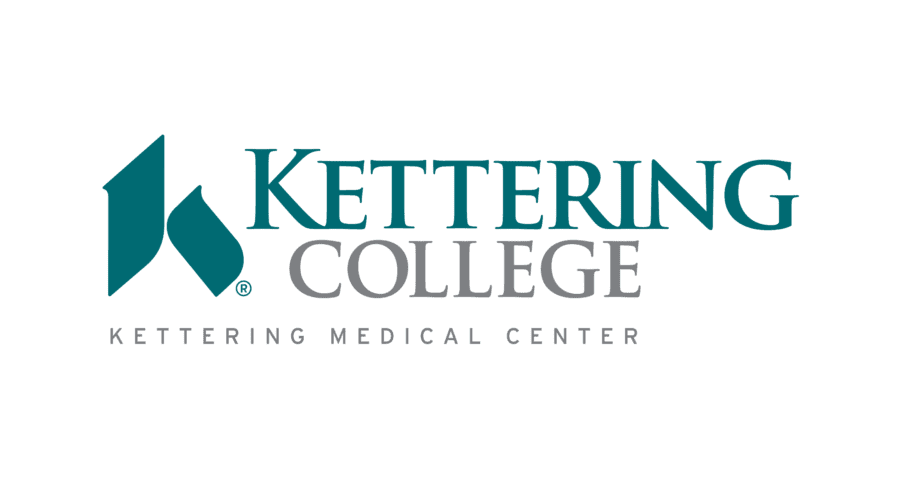
Located in Kettering, Ohio, this college has an online, B.S. in Advanced Imaging degree with four modalities in advanced imaging in its degree completion program.
You’ll have the option from Magnetic Resonance Imaging (MRI), Cardiovascular Interventional Technology (CIT), Vascular Interventional Technology (VIT), and Computed Tomography (CT). This online radiation science degree completion program is designed for current professionals and the advanced skills learned can lead to sectional or vascular imaging certification. These studies meet the ARRT requirements for registration and certification.
Admission is straightforward and involves an application, official academic transcripts from all schools attended, and at least a 2.3 GPA in coursework.
Estimated Tuition Cost: $593/per credit hour
Fast Fact: Kettering College is a private institution owned by the Kettering Medical Center
Click to learn more about the online radiation science bachelor’s!
5. The University of Oklahoma

You can earn your B.S. in Medical Imaging and Radiation Sciences online through OU’s College of Allied Health.
This is a non-clinical, online radiation science degree completion program and can be completed in 18 months or so. The B.S. will enhance your career advancement. Prerequisites are required in the form of an Associate degree or certification with studies in humanities, math, English, etc. Courses include studies in imaging principles, health administration, clinical regulations and accreditation, as well as instrumentation. As a working professional, and based on your education, credentials and/or licensure, and work experience, you’ll be awarded 30 credit hours of the 61 credit hours required for this undergraduate degree.
To be admitted, you need to be certified in a radiologic imaging science profession, a minimum of a 2.5 GPA for all college study, completion of an accredited program in radiography, sonography, nuclear medicine, or radiation therapy and have at least one year of work experience or five years in a radiation sciences profession.
Estimated Tuition Cost: $13,359-$32,841/per academic year
Fast Fact: OU is noted as being #62 in Top Public Schools by U.S. News and World Report
Click to learn more about the online radiation science bachelor’s!
6. Arkansas State University

This is an online, hybrid program that culminates with a B.S. in Radiologic Sciences from Arkansas State’s Medical Imaging and Radiation Sciences (MIRS) program.
You’ll be able to choose from six, radiology specialties in Cardiovascular-Interventional Technology, Medical Imaging Informatics, Mammography/Breast Sonography, Radiation Therapy, Magnetic Resonance Imaging, or Diagnostic Medical Sonography. General education courses are prerequisites prior to admission to a specialty program. The MIRS curriculum will also include anatomy and physiology and general chemistry studies. Clinical experiences may be required. If you’ve graduated from an accredited radiology technology school and have a passing score on the certification exam, you may receive up to 50 credits in radiology course credit. Arkansas State also provides a B.S. bridge program for current RTs who hold an Associate degree and want to advance in their careers.
Admission to the MIRS program requires you first to be accepted by Arkansas State which requires an admission application with a $30 fee, ACT/SAT scores, official school transcripts, and immunization records. Transfer applicants must meet the same requirements except for test scores but you will have to demonstrate completion of certain coursework.
Estimated Tuition Cost: $4,450-$7,930/per academic year
Fast Fact: Rated #224/676 in Niche’s Top Public Universities in America
Click to learn more about the online radiation science bachelor’s!
7. University of Cincinnati

If you’re currently working as a radiologic technologist and want your undergraduate degree, you should explore the online Bachelor of Radiation Science Technology at this Ohio school.
This 100% online radiation science degree program requires 60 credit hours to complete and offers two clinical specialties: Mammography or Computed Tomography. The curriculum requires you have certain prerequisites in general education topics, prior to your major coursework. Subjects in the major include studies in Pathophysiology for Health Professionals, Computed Tomography Science and Procedures, Healthcare Delivery Systems, Research and Writing in the Health Professions, as well as a Radiation Science Capstone Project. A clinical internship is part of the program.
You need to submit an application, academic transcripts, at least a 2.5 GPA, letters of recommendation, and proof of licensure and/or credential for admission. The University of Cincinnati is accredited by the Higher Learning Commission (HLC).
Estimated Tuition Cost: $30,720-$31,620/program total
Fast Fact: U.S. News and World Report names the University of Cincinnati as one of its Best Value Schools
Click to learn more about the online radiation science bachelor’s!
8. Virginia Commonwealth University
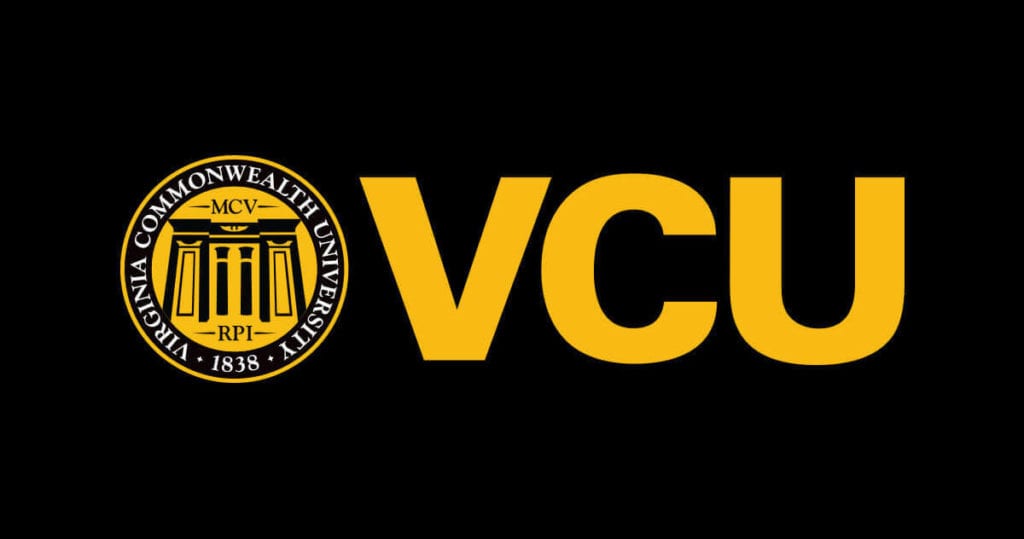
You can earn a B.S. in Clinical Radiation Sciences in one of the four modalities offered by VCU. If you currently are RT certified or have an Associate degree, you can also enter the degree completion program in three modalities.
VCU offers several hybrid online radiation science degree programs for first-year students, currently working RTs, and students with an Associate degree wanting to complete their undergraduate studies. Depending on your objectives, you can specialize in entry-level studies in Nuclear Medicine, Radiation Therapy, or Radiography. You can also choose to study Diagnostic Medical Sonography. If you’re currently working as a RT and want to continue your education, you can take second modalities in Nuclear Medicine, Radiation Therapy, or Sonography. Degree completion students can choose from Nuclear Medicine, Radiation Therapy, or Radiography.
Students will need to submit an application, academic transcripts, references, and letters of recommendation. Entry-level students will have prerequisites required for admission.
Estimated Tuition Cost: $14,710-$36,048/per academic year
Fast Fact: VCU ranks in the top 100 of U.S. News and World Report’s Top Public Schools
Click to learn more about the online radiation science bachelor’s!
9. Nebraska Methodist College

NMC has an online B.S. in Imaging Sciences degree completion program for those professionals with an Associate degree and currently hold an ARRT license.
The online radiation science degree completion program requires 122 credit hours and you’ll want to discuss what courses from your Associate degree and/or work experience will be applied toward those hours. This program meets all the clinical competencies required by the American Registry of Radiologic Technologists (A.R.R.T.). The curriculum has classes in Advanced Cross-Sectional Anatomy, Radiology Fundamentals and Clinical Assessment, Radiographic Imaging, Radiation Biology and Protection, seminars, and research among others.
As you apply for admission, you’ll need a 2.5 GPA minimum, provide academic transcripts, and proof of AART certification. Students not living in Nebraska will need to State Authorization requirements.
Estimated Tuition Cost: $580/per credit hour
Fast Fact: Founded in 1891as a private, Methodist college
Click to learn more about the online radiation science bachelor’s!
10. Gwynedd Mercy University

Located 30 minutes outside of Philadelphia, Gwynedd Mercy University has a hybrid Bachelor of Health Science in Radiation Therapy specifically for radiographers who’ve graduated from a Joint Review Committee on Education in Radiologic Technology (JRCERT) program and who are registered or registry eligible.
You’ll take 62 credit hours in a variety of radiation therapy classes in this 40-year-old radiation therapy academic program offered through the Frances M. Maguire School of Nursing and Health Professions. The degree takes an estimated 20-month to complete. Among those classes are Principles of Radiation Oncology Patient Care, Clinical Oncology, Radiation Biology, Cross-Sectional Anatomy, Advanced Medical Dosimetry, Clinical Education, as well as a Capstone Research Project.
In addition to having completed a JRCERT approved program and have a minimum of an Associate degree, for admission you’ll need to complete an application, provide academic transcripts, a letter of recommendation, and be proficient in math, and a shadow experience that will be observed and evaluated.
Estimated Tuition Cost: $765/per credit hour
Fast Fact: Gwynedd is rated #477/1,572 in Niche’s Best Value Colleges in America
Click to learn more about the online radiation science bachelor’s!
11. Colorado Mesa University

This Bachelor of Applied Science (BAS) degree in Radiologic Sciences from CMU is offered online for students who currently have an associate applied science degree in radiologic technology or radiologic science.
With the AAS degree, you can earn the 121 credit hour BAS-RS in approximately four semesters. Specific studies in RS will include topics in Sectional Anatomy, Principles of Magnetic Resonance Imaging and Applied Magnetic Resonance Imaging, Principles in Computer Tomography and Applied Computer Tomography, Advanced Patient Care, as well as clinical specialization. You’ll also be required to complete courses in English, college math, humanities, social and behavioral sciences, and more.
To be admitted to this program, you’ll not only need the AAS degree, but be ARRT (or equivalency) certified. If you hold a JRCERT accredited program certificate, you can talk with an advisor and be admitted to CMU’s program on a conditional basis. The last 30 credit hours must be completed at CMU and a 2.0 GPA is expected throughout the program.
Estimated Tuition Cost: $318-$740/per credit hour
Fast Fact: CMU is considered one of U.S. News and World’s Top Public Schools
Click to learn more about the online radiation science bachelor’s!
12. Clarion University of Pennsylvania
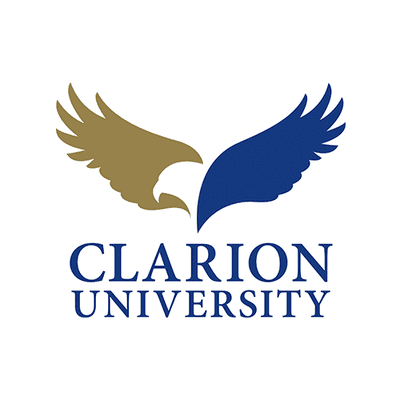
If you’re credentialed in radiologic technology, sonography, nuclear medicine, radiation therapy, etc., and want to earn your B.S. in Medical Imaging, you may want to review this program from Clarion University of Pennsylvania.
Some of the major courses included in this program of study are radiographic procedures, radiographic imaging, radiologic physics, human anatomy, physiology, chemistry, research methods, general psychology, sociology, etc. You may also be required to complete courses in the humanities, English, math, and so on, if needed to meet the 120 credit hour requirement.
You’ll need to complete an admission application (with a $35 fee), submit academic transcripts from all schools attended, and you may/may not be asked to provide standardized test scores.
Estimated Tuition Cost: $9,829-$11,108/academic year
Fast Fact: Niche ranks Clarion University #993/1,401 in its Best Value Colleges in America
Click to learn more about the online radiation science bachelor’s!
13. Saint Joseph’s College of Maine
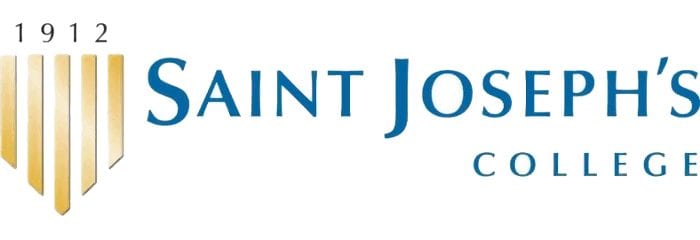
This is an online B.S. in Radiologic Science Administration designed to train radiologic professionals for managerial and administrative roles.
You can transfer up to 50 semester hours from an accredited radiology program and this degree will satisfy licensure requirements in most states. The program requires 42 credit hours in general education, 24 hours in radiologic sciences, and 36 hours in electives. Core requirements include studies in Ethics in Health Administration, Human Resource Management, Legal Aspects of Healthcare Administration, as well as Healthcare Financial Management, and more.
Admission to online programs at Saint Joseph is streamlined and requires an application and official transcripts from schools or programs you’ve attended. Additional information may be needed and you should discuss requirements with an admission counselor.
Estimated Tuition Cost: $367/per credit hour
Fast Fact: Niche rates Saint Joseph at #568/1,572 in its Best Value Colleges in America ranking
Click to learn more about the online radiation science bachelor’s!
14. Prima Medical Institute in Las Vegas

You need an associate degree to apply for this online B.S. in Radiologic Sciences degree completion program.
This is a 120 credit hour program that allows you to transfer 70 credit hours from your associate degree program, the remaining 50 hours will be spread over four semesters. You may take courses in Pathophysiology, Advanced Patient Assessment and Treatment, Statistical Concepts, Healthcare Management, as well as a Professional Capstone project. While the program may take up to 16 months for completion, you may be eligible for the school’s Fast Track program. Admission advisors can provide you information on whether you qualify for Fast Track.
Among the prerequisites for admission to this program are submission of academic transcripts from prior collegiate study, high school/GED transcript, up-to-date American Registry of Radiologic Technologists (ARRT) certification, current radiography (or recent graduation) within the past five years.
Estimated Tuition Cost: $14,335/per academic year
Fast Fact: Pima Medical Institute is a private, for-profit institution
Click to learn more about the online radiation science bachelor’s!
15. College of Health Care Professions

If you’re looking to further your radiologic sciences career, you may want to look at the College of Health Care Professions’ online B.S. in Radiologic Science Management degree.
This program is 28 months in length and covers a variety of courses. You may take classes in Financial Management in Diagnostic Imaging, Management and Leadership in Radiologic Sciences, Patient Safety in Diagnostic Imaging, Asset Management in Diagnostic Imaging, Diagnostic Imaging Pathophysiology, as well as a Management Capstone. You’ll also take classes in public speaking, sociology, history, critical thinking, and more. On graduation, you’ll be eligible to sit for The Association for Medical Imaging Management Certified Radiology Assistant (CRA) Exam.
To be admitted, you need an Associate degree from an accredited imaging program or a completion certificate, be currently licensed or certified by The American Registry of Radiologic Technologists (ARRT), The Nuclear Medicine Technology Certification Board (NMTCB) or The American Registry of Diagnostic Medical Sonography (ARDMS). You should be prepared to submit official transcripts and other documents as needed.
Estimated Tuition Cost: $26,300
Fast Fact: Located on 7 campuses throughout Texas, this is a private, for-profit institution founded in 1988
Click to learn more about the online radiation science bachelor’s!
Are Online Radiation Science Degrees in Radiologic Sciences and Radiation Therapy Worth it?
There are several reasons why an online bachelor’s in Radiologic Sciences would be an attractive option.
With the minimum educational requirement of an Associate degree for Radiologic Sciences, technicians may find themselves wanting to advance their careers by earning an undergraduate degree. Online, degree completion programs will credit your Associate degree coursework toward your bachelor’s degree, reducing the amount of time you’ll need to complete your B.S.
If you’re currently certified and working as an RT, taking time off to earn your undergraduate degree may not be the best option. Online programs allow you to take courses at your own pace while letting you continue to work and meet family obligations.
Less time in school also equates to less money paid in tuition costs. Many schools offering online programs don’t charge out-of-state tuition costs. This may expand your school choice options. However, be careful that the program you choose will meet your state’s licensure requirements.
Finally, the Covid-19 pandemic illustrated the benefits of online education. Most colleges and universities moved seamlessly from in-class studies to online studies to reduce the risk of infection among students, faculty, and staff. Online classes and degrees are taught by the same faculty, using the same curriculum.
How Much Can I Make with a Degree in Radiation Therapy?
Radiation Therapists, according to the Bureau of Labor Statistics, can earn from $83,900-$97,150 depending on where you work and live. PayScale reports the median salary for a Radiation Therapist is $74,046 annually, with an upper range of $99,000.
Radiology Technologists can earn up to an annual $52,577-$76,000, while Radiology Technicians are estimated to earn from $48,463-$75,000, according to PayScale.
How Do You Earn an Accredited Radiation Therapy Degree?
Accreditation is an important aspect of healthcare education and Radiologic Sciences is no exception. Schools, beyond being regionally accredited by organizations like the Higher Learning Commission, frequently will also hold professional accreditation for their degree programs.
In the Radiologic Sciences field, you want to find online Radiation Science degrees that have accreditation from the U.S. Department of Education recognized, Joint Review Committee on Education in Radiologic Technology (JRCERT). This accreditation assures you that your course of study will provide you the education necessary to sit for the American Registry of Radiologic Technologists (ARRT) credentialing exams. This credential is necessary for those states requiring licensure.
If you have an Associate degree and are pursuing a Bachelor of Science degree, you’ll want to be certain the program holds the proper accreditation.
Related Rankings: